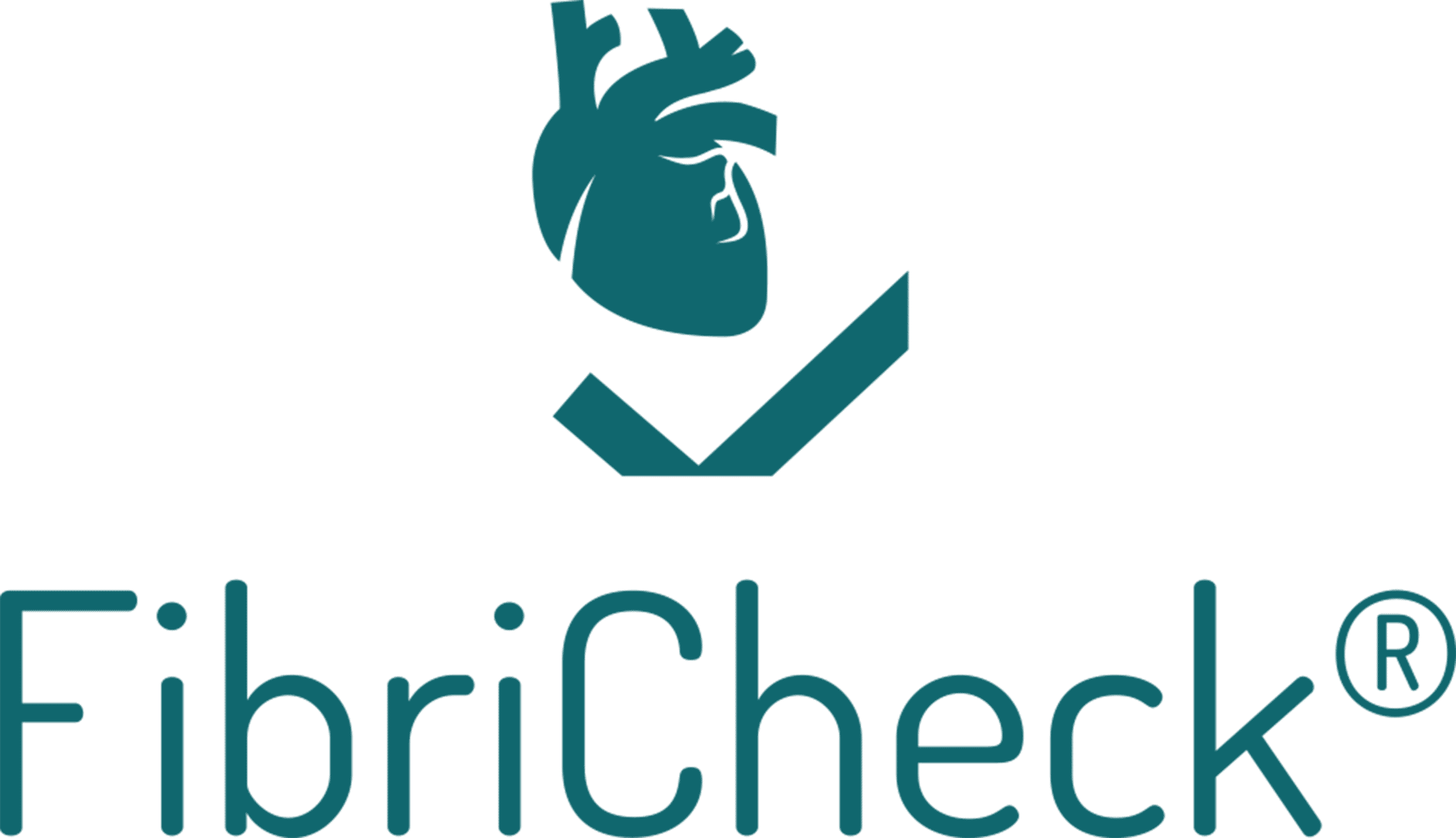Once you get past the age of 40, the risk of developing atrial fibrillation at some point in your life is 1 in 4.1 And the older you get, the greater the risk you may end up with this disorder, which sees the atria of the upper chambers of the heart contract erratically and far too quickly. But age is not the only factor that plays its part. There are many other risk factors that may impact the onset of atrial fibrillation – also referred to as auricular fibrillation or AF for short.
Some of these factors we simply have very little control over. But then there are others which we definitely can act upon. Now, adopting a healthy lifestyle is a good idea, whatever the situation. Let’s face it, none of us needs a stroke or a heart attack. That said, in Europe alone, over 11 million people have AF. A number which grows by a further 886,000 people each year.2 This not only makes atrial fibrillation one of the most common heart rhythm disorders, the disorder also accounts for no less than 25% of all strokes.
All the more reason then to take a sober-headed look at your lifestyle. Adapting your lifestyle not only sees you reduce the risk of AF but also drives down the risk of a wide number of other conditions.
Am I at greater risk of atrial fibrillation?

Or take genetic predisposition. Scientific research shows that hereditary heart rhythm disorders are the result of errors (mutations) in our genetic code. These errors may affect different types of proteins that are responsible for the heart’s normal activity. Where this occurs, the electrical operation of the heart goes haywire, leaving us with heart rhythm disorders as a result.
If you have a cardiac valve disease, a congenital heart defect, heart failure, or if you have had a heart attack or cardiac surgery, you are at greater risk of AF.
The same applies when you go around with high blood pressure for longer periods of time or other chronic health problems such as a thyroid disorder, sleep apnoea or diabetes.
But there are other risk factors you can control and effectively reduce by making changes to your lifestyle.
High blood pressure
Your blood pressure is the pressure inside your blood vessels. This pressure is needed to pump the blood around your body, to make sure all your organs and muscles get enough oxygen. Your blood pressure is at its highest when the heart contracts (peak pressure or systolic blood pressure) and drops again when your heart relaxes (underpressure or diastolic blood pressure). If your blood pressure is too high, this is referred to as hypertension. In most cases, you will not notice this yourself. However, if you carry this around for years on end, it not only increases your risk of a myocardial infarction, heart failure or a stroke, but also your risk of atrial fibrillation.
Overactive thyroid gland
The thyroid is a small, butterfly-shaped organ that is located in the neck. The gland secretes two hormones (T3 and T4) which are important to ensure normal growth and development and which help regulate a lot of different bodily processes. It may be that your thyroid goes into overdrive and secretes too much thyroid hormone. This is known as hyperthyroidism and may result in a heart rhythm disorder.
Sleep apnoea
Sleep apnoea is a disorder where you literally stop breathing for at least 10 seconds whilst sleeping or where your respiration is severely impaired. It’s quite possible that you do not notice this and simply continue to sleep, but by the same token you may abruptly awake from sleep several times a night. In either case, it has an impact on your blood pressure and heart rate and it increases the risk of atrial fibrillation.
Diabetes
In the case of diabetes, your body does not produce enough or simply produces no insulin. As a result, glucose (or sugar) remains present in your blood instead of entering the body cells where it is used as a source of energy. This may lead to changes in the heart muscle, which may result in atrial fibrillation.
Excess weight
People are said to be overweight when their Body Mass Index (BMI) is higher than 25. Does this apply to you? If so, you are not alone. In 2016, over 1.9 billion people worldwide were overweight (i.e. had a BMI between 25 and 29.9). And no fewer than 650 million of their number were obese (had a BMI higher than 30).3 Which is why doctors quite rightly refer to this situation as a global problem. All the more so as obesity means that you are at greater risk of cardiovascular diseases, diabetes and some types of cancer. And the higher your BMI, the greater the risk you develop atrial fibrillation.
High-intensity endurance sports
Getting more exercise? Good idea, you might think. And it is certainly true to say that getting some exercise in does wonders for your heart health.4 But, as applies to many things in life, there is something like too much of a good thing. As such, we are seeing a higher prevalence of AF among people who are into endurance sports.5 If you spend longer than three hours a week intensively exercising you are at greater risk of developing atrial fibrillation (AF).
Excessive consumption of caffeine, alcohol or drugs

Stress
Stress is not always necessarily a bad thing. A dose of ‘positive stress’ at a job interview is perfectly normal and will even help you stay focused. But subjected to long-term stress, the body does not get enough time to recover. This may lead to high blood pressure, high cholesterol and inflammations that accelerate the onset of arteriosclerosis (the hardening of the arteries).
Peace of mind thanks to FibriCheck
How many of the risk factors did you tick? None?? That’s great! If you are still concerned about AF, you can use the medically certified FibriCheck app.
Monitoring your heart rhythm for a minute two or three times a day using your smartphone and/or smartwatch (Fitbit and Samsung Galaxy Watch), not only helps put your own mind at rest, you are also collecting a lot of useful data which are immediately actionable by your doctor if need be.
The FibriCheck app tells you, right there and then, if your heart rhythm is okay at that point in time. What if the app does detect abnormal cardiac activity? Within 48 hours, you get a personal review (*) of the measurement results by our medical experts.
(*) Personal reviews by our medical experts are included in our free trial and our Premium plan.
References
- Laila Staerk et al. Lifetime risk of atrial fibrillation according to optimal, borderline, or elevated levels of risk factors: cohort study based on longitudinal data from the Framingham Heart Study, 2018, doi: 10.1136/bmj.k1453.
- Global Burden of Disease Collaborative Network. Institute for Health Metrics and Evaluation (IHME) [Internet], 2017.
- World Health Organization Obesity and Overweight Factsheet. Consulted on http://www.who.int/news-room/fact-sheets/detail/obesity-and-overweight
- Lavie CJ et al. Exercise training and cardiac rehabilitation in primary and secondary prevention of coronary heart disease, Mayo Clin Proc, 2009,doi:10.1016/S0025-6196(11)60548-X.
- Atrial fibrillation in athletes and general population – A systematic review and meta-analysis. Consulted on https://journals.lww.com/md-journal/Fulltext/2018/12070/Atrial_fibrillation_in_athletes_and_general.51.aspx
- Campbell P. One Drink Per Day Increases Risk of AFib 16% in Healthy Patients. Geraadpleegd op https://www.practicalcardiology.com/view/one-drink-per-day-increases-risk-of-afib-16-in-healthy-patients
Created on February 19th, 2021 at 10:20 am
Last updated on March 7th, 2023 at 10:20 am



